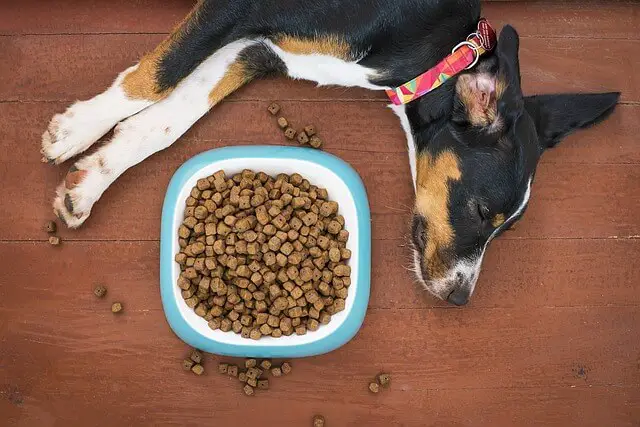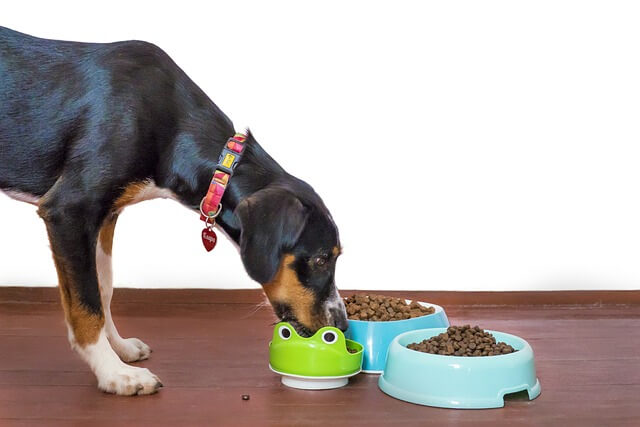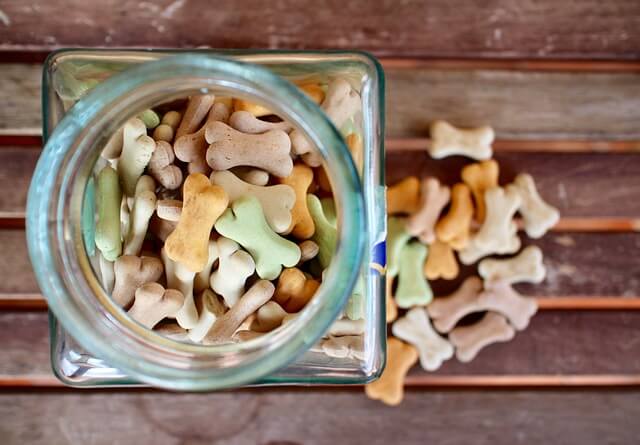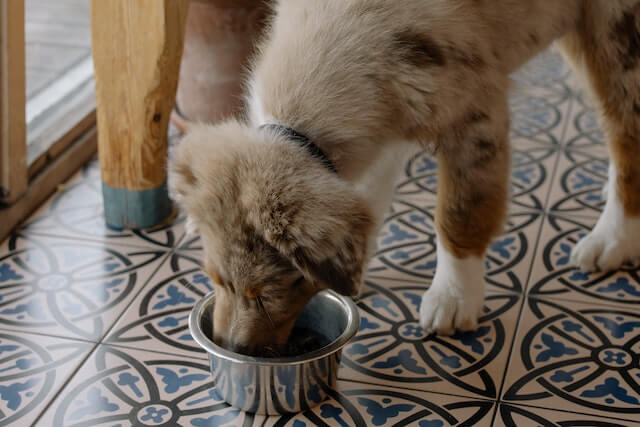When it comes to keeping your pup healthy and happy, nutrition is key. But with so many different types of dog food on the market, how do you know which one is best for your four-legged friend? Here’s a quick crash course in canine nutrition – that will help you choose the right dog food for your pup.
Research Nutritional Requirements
The first step in choosing the right dog food for your pup is understanding its nutritional requirements. Dogs require a balanced diet that includes carbohydrates, proteins, fats, vitamins, minerals, and water. Different breeds may have different dietary needs depending on their size and activity level; for example, a small breed puppy may need more calories than an adult Great Dane. Look at the nutritional labels on dog foods to get an idea of what ingredients are included and if they meet your dog’s dietary needs.
Choose Quality Ingredients
You should also pay attention to the quality of ingredients used in dog foods. Look for natural sources of protein like chicken or fish as well as healthy carbs like brown rice or oatmeal; avoid fillers like corn or wheat gluten that can be difficult to digest. Be sure to check out reviews from other pet owners—they can provide helpful insight into both the quality and flavor of specific brands or types of pet food.
Consider Your Pup’s Needs
Finally, consider what stage of life your pup is in when selecting its food. Puppies will require more energy than adult dogs; they also need higher levels of fat and protein since they are still growing and developing. Adult dogs require fewer calories and less fat since they are no longer growing; senior pups may need a diet with lower levels of protein as well as extra fiber to help reduce stress on their digestive system. Taking these factors into consideration will help ensure that you select the right dog food for your pup’s age group and activity level so they get all the nutrition they need!
The key to keeping your pup happy and healthy is providing them with nutritious meals tailored specifically to their size, age, and activity level. With some research into nutritional requirements and quality ingredients as well as careful monitoring of portion sizes, you can easily choose the perfect dog food for your four-legged friend!

Your Dog’s Diet: What You Need to Know About Dog Food
A balanced diet is essential for your pup’s health and well-being. As an informed dog owner, you want to make sure that your companion gets all the nutrition they need and avoid any potential health issues down the road. Let’s take a look at what comprises a healthy diet for your furry friend.
Protein and Fat Requirements
Dogs need protein and fat in their diet to stay healthy. Protein provides amino acids which are used by the body for growth and maintenance while fat is used as an energy source. The amount of protein and fat needed depends on the size, breed, age, and activity level of your pup; however, most experts recommend that adult dogs consume 15-30% protein and at least 5% fat in their diet.
Vitamins & Minerals
Vitamins and minerals can be divided into two groups: water-soluble vitamins (vitamin C & B complex) and fat-soluble vitamins (vitamin A, D, E & K). Vitamins play important roles in many bodily functions such as metabolism, digestion, immunity support, etc., while minerals help with bone formation, muscle contraction, enzyme activation and more. Since the body cannot produce these essential nutrients on its own, it needs to be provided through a balanced diet.
Fiber Requirements
Fiber is an important part of a balanced canine diet as it helps keep them regular by promoting healthy digestion. It also plays a role in helping maintain blood sugar levels and providing bulk which can help prevent overeating. Most experts recommend that adult dogs receive between 3-5% fiber in their diets for optimal health benefits.
What You Need to Know About a Balanced Dog Diet
Feeding your pup the right dog food is essential in keeping them healthy and active. There’s a lot of information out there about what type of dog food you should give your dog, so it can be difficult to know what the best option is for your pup. That’s why we’ve put together this guide on creating a balanced diet for your pup that will keep them healthy and happy for years to come.
If your pup has a sensitive stomach, you may want to consider switching over to a limited-ingredient diet. This type of diet is designed specifically for pups with digestive issues or food sensitivities and can help reduce the chance of an upset stomach after eating. Limited-ingredient diets are also beneficial for dogs who have allergies as they only use one single source of protein and usually have fewer ingredients than other commercial dog foods.
Types of Food
When deciding on the types of food that you want to include in your dog’s diet, it’s important to consider their individual needs. In general, most pups need a combination of dry kibble, wet canned food, treats, and occasional fresh foods.

Your Dog’s Diet: What You Need to Know About Dog Food
A balanced diet is essential for your pup’s health and well-being. As an informed dog owner, you want to make sure that your companion gets all the nutrition they need and avoid any potential health issues down the road. Let’s take a look at what comprises a healthy diet for your furry friend.
Protein and Fat Requirements
Dogs need protein and fat in their diet to stay healthy. Protein provides amino acids which are used by the body for growth and maintenance while fat is used as an energy source. The amount of protein and fat needed depends on the size, breed, age, and activity level of your pup; however, most experts recommend that adult dogs consume 15-30% protein and at least 5% fat in their diet.
Vitamins & Minerals
Vitamins and minerals can be divided into two groups: water-soluble vitamins (vitamin C & B complex) and fat-soluble vitamins (vitamin A, D, E & K). Vitamins play important roles in many bodily functions such as metabolism, digestion, immunity support, etc., while minerals help with bone formation, muscle contraction, enzyme activation and more. Since the body cannot produce these essential nutrients on its own, it needs to be provided through a balanced diet.
Fiber Requirements
Fiber is an important part of a balanced canine diet as it helps keep them regular by promoting healthy digestion. It also plays a role in helping maintain blood sugar levels and providing bulk which can help prevent overeating. Most experts recommend that adult dogs receive between 3-5% fiber in their diets for optimal health benefits.
What You Need to Know About a Balanced Dog Diet
Feeding your pup the right dog food is essential in keeping them healthy and active. There’s a lot of information out there about what type of dog food you should give your dog, so it can be difficult to know what the best option is for your pup. That’s why we’ve put together this guide on creating a balanced diet for your pup that will keep them healthy and happy for years to come.
If your pup has a sensitive stomach, you may want to consider switching over to a limited-ingredient diet. This type of diet is designed specifically for pups with digestive issues or food sensitivities and can help reduce the chance of an upset stomach after eating. Limited-ingredient diets are also beneficial for dogs who have allergies as they only use one single source of protein and usually have fewer ingredients than other commercial dog foods.
Types of Dog Food
When deciding on the types of food that you want to include in your dog’s diet, it’s important to consider their individual needs. In general, most pups need a combination of dry kibble, wet canned food, treats, and occasional fresh foods.

Dry Kibble
Dry kibble is typically made from high-quality grains such as wheat or corn and is rich in essential vitamins and minerals. The amount of kibble you feed your pup will depend on their size and activity level; consult with your veterinarian if you’re unsure how much kibble they should be eating per day. It’s also important to make sure you choose a quality brand that is free from artificial preservatives and additives.
Wet Canned Dog Food
Canned wet food can also be included in a balanced diet as long as it does not contain any by-products or fillers such as corn or wheat. This type of dog food usually contains more meat than dry kibble which makes it an excellent source of protein for dogs who need extra energy. However, because canned wet foods are higher in fat content it should only be given in moderation (think once or twice per week).
Treats
Treats can also be part of a balanced diet as long as they are given in moderation (no more than 10% of daily calorie intake). Look for treats that are made from natural ingredients such as fresh fruits or vegetables, meat, fish, eggs, etc., rather than those that contain processed meats or artificial flavors/preservatives.
Fresh Foods
Incorporating some fresh foods into your pup’s diet can provide additional vitamins and minerals that may not be present in their regular meals. Some examples include cooked meats (such as chicken breast), cooked fish (such as salmon), boiled eggs, plain yogurt, cottage cheese, carrots, apples (with no seeds), green beans, and other fruits/vegetables that don’t contain any harmful toxins or chemicals. It’s best to always consult with your vet before introducing any new foods into their diet just to make sure they’re getting everything they need nutrition-wise!

The Benefits of Fresh Dog Foods
In addition to commercial dog food, fresh ingredients like fruits and vegetables are beneficial for dogs as well. Adding fresh foods into their diet can help round out their nutritional intake and provide them with additional vitamins and minerals that may not be present in their regular dog food.
Some great additions include apples (without the seeds!), carrots, green beans, cooked sweet potatoes, cooked eggs (no shells!), cooked chicken breast (no bones!), oats (cooked or raw), yogurt (plain), cottage cheese (low-fat varieties), peanut butter (no sugar added) – just make sure these foods are free from any additives or seasonings that could potentially harm your pup!
It’s also important to remember that not all human foods are safe for dogs; some common items like onions and garlic can cause digestive upset or even toxicity if ingested by your furry friend! Be sure to research any ingredient before adding it to your pup’s diet.
Creating Balance Through Variety
When creating a balanced diet for your pup it’s important to ensure that you provide them with variety from both commercial dog food and fresh ingredients alike. This will help ensure that they get all the essential nutrients they need without consuming too much of any one thing—which could lead to an unbalanced diet that is lacking in certain key vitamins or minerals needed for optimal health. Additionally, rotating between different types of dog food every few weeks helps keep things interesting for Fido while still providing adequate nutrition!

5 Superfoods Every Dog Owner Should Add to Their Pet’s Diet
A healthy diet is essential for any pet, and dogs are no exception. While kibble is the mainstay of many canine diets, there are plenty of superfoods out there that can boost your dog’s health and help them stay in top shape. Here are five foods that you should consider adding to your pup’s dinner plate today!
1. Salmon: Salmon is an excellent source of omega-3 fatty acids, which can help reduce inflammation in dogs. It also contains high levels of protein and B vitamins, making it a great addition to your pup’s diet if they need a little extra energy. Make sure you buy wild-caught salmon for the best results.
2. Sweet Potatoes: Sweet potatoes are a great source of fiber and beta carotene, which helps keep the eyes healthy and strong. They are also high in vitamin C and other minerals, making them one of the most nutritious superfoods available for dogs. Be sure to cook them thoroughly before serving to ensure they don’t upset your pup’s stomach!
3. Apples: Apples contain a wealth of antioxidants, as well as vitamins A and C, which can help keep your pup’s coat shiny and its immune system strong. They can also be used as an occasional treat due to their natural sweetness—just make sure you remove the seeds first!
4. Oats: Oats provide complex carbohydrates that can give your dog sustained energy throughout the day without causing spikes or crashes like some other grains might. They are also high in fiber, which can aid digestion and make it easier for your pup to absorb all the nutrients they need from their food. Just make sure you use plain oats with no added sugars or flavors!
5. Blueberries: Blueberries contain powerful antioxidants that can help fight off free radicals in your pup’s body while boosting brain function at the same time! They are also rich in vitamin C, manganese, and fiber—all important nutrients for keeping your pup happy and healthy for years to come!
As you can see, there are plenty of superfoods out there that can provide additional nutrition for your pup without compromising on taste or quality! Not only will incorporating these five foods into their diet help keep them healthier overall; but it will also add variety so they don’t get bored with their meals every day! If you’re looking for ways to give your furry friend some extra love this year, why not start by giving them healthier food? You’ll both be glad you did!






